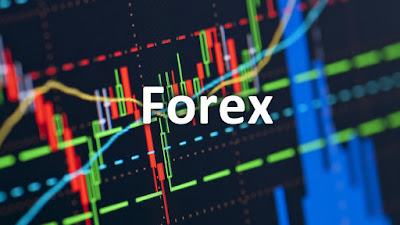The Foreign Exchange Market is the platform through which the different currencies of the world are traded. Also known as the Forex or the FX Market, it is the largest of any of the financial markets. The numbers posted in trading volume on a typical day are close to $4 trillion U.S. dollars, with around 1/3 of that amount traded in London markets.
The principle is easy enough to understand. In fact, any traveler has experienced it upon arrival in a foreign country. In order to obtain local currency, one must sell one currency and buy the other. FX traders operate on the same system, though on a much grander scale.
Looking closer at the process in a newspaper's financial section, an observer might notice the "bid" prices versus the "ask" prices. Basically, a bank will set the "ask" price, which is the rate it will offer to buyers. This rate will be higher than the one someone selling back to the bank would receive (the "bid" price). The difference between these two prices is known as the "spread" and is the way a bank will profit from the Foreign Exchange Markets.
Many different strategies are available to investors in the Forex Markets. While it is obvious that some currencies are devaluating or growing stronger in broader trends, the different fluctuations over a short period of time can be highly profitable for investors. At the same time, a long-term strategy may be a winning technique.
Forex markets are not a common item in the typical private investment portfolio. Because the control is in the hands of the banks which set the spread between the bid and ask price, these banks get a price available only to the top players in the financial world. In fact, with all of the trading which takes place on a daily basis, nearly 80% is done by the world's top ten in the banking industry. Deutsche Bank leads the way, with outfits like Barclay's and JP Morgan close behind.
Speculation is behind much of the trading in the Foreign Exchange Market and for this reason it is a popular place for hedge funds to do business on a daily basis. The aggressive investment strategy typical of hedge funds is effective in Forex trading because it can outweigh other factors affecting the rates, such as government intervention on behalf of a plunging currency.
The reasons why a country's currency may become stronger or weaker are numerous. National budget deficits can contribute, as well as the ability of a government of handle a budget surplus. Overall GDP growth is always important, as well as political developments.
An interesting feature of the FX is the fact that they never close between Monday and Friday. After the close of business in New York, traders can continue on in Europe and finally Asia before New York markets open once again in the morning. - 31876
The principle is easy enough to understand. In fact, any traveler has experienced it upon arrival in a foreign country. In order to obtain local currency, one must sell one currency and buy the other. FX traders operate on the same system, though on a much grander scale.
Looking closer at the process in a newspaper's financial section, an observer might notice the "bid" prices versus the "ask" prices. Basically, a bank will set the "ask" price, which is the rate it will offer to buyers. This rate will be higher than the one someone selling back to the bank would receive (the "bid" price). The difference between these two prices is known as the "spread" and is the way a bank will profit from the Foreign Exchange Markets.
Many different strategies are available to investors in the Forex Markets. While it is obvious that some currencies are devaluating or growing stronger in broader trends, the different fluctuations over a short period of time can be highly profitable for investors. At the same time, a long-term strategy may be a winning technique.
Forex markets are not a common item in the typical private investment portfolio. Because the control is in the hands of the banks which set the spread between the bid and ask price, these banks get a price available only to the top players in the financial world. In fact, with all of the trading which takes place on a daily basis, nearly 80% is done by the world's top ten in the banking industry. Deutsche Bank leads the way, with outfits like Barclay's and JP Morgan close behind.
Speculation is behind much of the trading in the Foreign Exchange Market and for this reason it is a popular place for hedge funds to do business on a daily basis. The aggressive investment strategy typical of hedge funds is effective in Forex trading because it can outweigh other factors affecting the rates, such as government intervention on behalf of a plunging currency.
The reasons why a country's currency may become stronger or weaker are numerous. National budget deficits can contribute, as well as the ability of a government of handle a budget surplus. Overall GDP growth is always important, as well as political developments.
An interesting feature of the FX is the fact that they never close between Monday and Friday. After the close of business in New York, traders can continue on in Europe and finally Asia before New York markets open once again in the morning. - 31876
About the Author:
Damian Papworth has successfully traded high yield investments for much of his adult life. He understands their impact in any work from home plan.

Nenhum comentário:
Postar um comentário